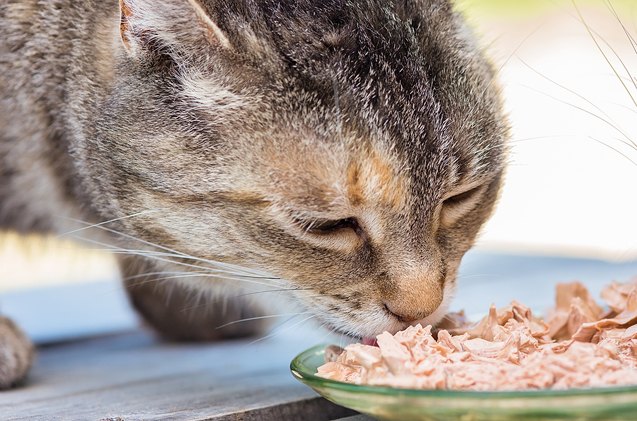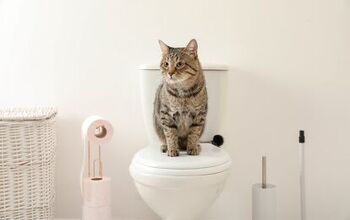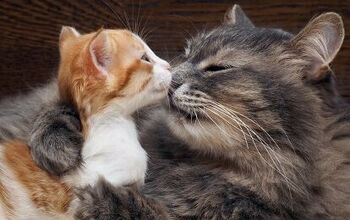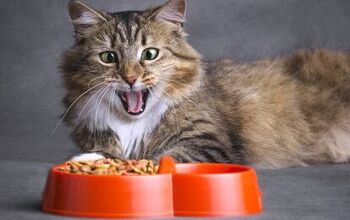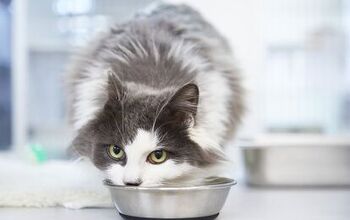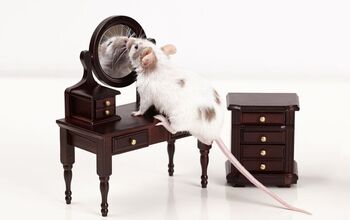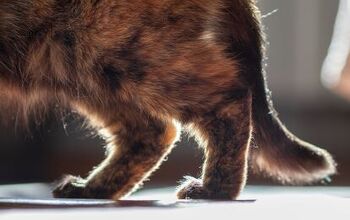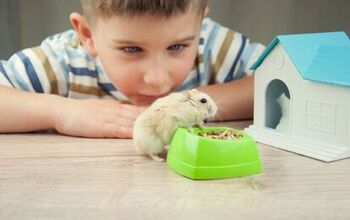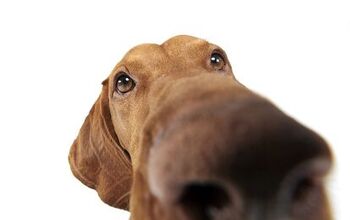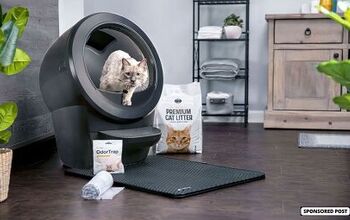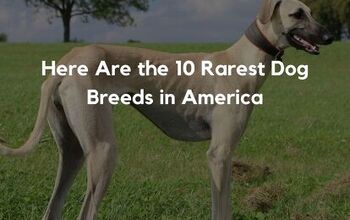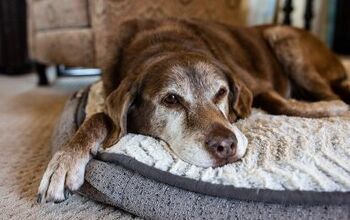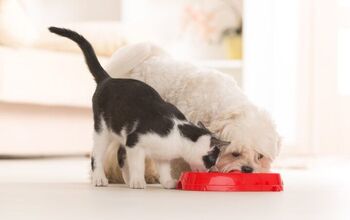Do you really know what goes into your cat’s food? We chatted with the folks at TruthAboutPetFood.com to learn more about what our cats are eating.How much do you know about your cat’s food, and the pet food industry in general? Susan Thixton, who runs TruthAboutPetFood.com, has done her research on this important topic, and she’s become active in educating the public. We asked her a few questions to get information that could help pet parents make wiser choices regarding their furry friend’s nutrition.For those who aren’t familiar with who you are and what your website, TruthAboutPetFood.com, is all about, can you give me a bit of your background and what inspired you to create your site? What can people find on your site, and how can they use it to improve the way they feed their cats?Susan: Friends encouraged me to start TruthaboutPetFood.com. I was constantly sharing information about pet food I had learned, and they either wanted me to share this information with other consumers or wanted me to have an outlet to bug other people about pet food.The website started off with just sharing information about the industry, and then consumers/readers urged me to attend pet food regulatory meetings (representing the consumer voice). As I learned more about regulations and the lack of enforcement of those regulations in pet food, the focus of the website became advocacy.Related: Should You Change Your Cat’s Food?On the website, consumers can learn about pet food ingredients, legal definitions of ingredients (which aren’t accessible to the public), tricks to understanding the label, and just about every topic possible related to pet food.What should all cat owners know when it comes to how nutrition affects their pets’ health and longevity? What information are most people unaware of, even though they should know it?Susan: We are what we eat. This long-known saying applies just as much to our pets as it does to us. What most consumers aren’t aware of is that most pet foods are feed, and most are poor quality. I can’t blame consumers for not knowing this information, as it’s intentionally kept from consumers.In human food, all regulations are public information. In pet food, all ingredient definitions and most regulations are corporately owned by AAFCO and copyright protected. The system of pet food is set up to keep consumers unaware of what they’re actually providing their pet.When cat parents search for the highest quality food possible for their kitties, what ingredients should they look for, and which ingredients should they avoid?Susan: For me, particular ingredients aren’t as important as quality of ingredients.Most pet foods aren’t food; they’re feed. Feed is different than food. As an example, the Food and Drug Administration (FDA, the main regulatory agency over pet food) openly allows feed grade pet food to utilize inferior quality ingredients, and some ingredients actually violate law.Related: How to Transition Your Cat to New FoodUsing the example of chicken in pet food, consumers will notice many pet food labels tout the claim “Made with Real Chicken.” This doesn’t necessarily mean made with the same type of “real” chicken you’re familiar with in human food. “Real” pet food chicken is allowed, by the FDA, to be sourced from USDA inspected and passed chicken meat (same as human food), or USDA inspected and failed (condemned) chicken meat, or passed and/or condemned chicken skin and bones. With feed grade pet foods, consumers have no assurance as to what they’re actually feeding their pets.Opposite of feed grade pet foods are human grade pet foods. Human grade pet foods are made with 100% human edible ingredients, including supplements, and are manufactured according to human food safety standards (feed grade pet foods are held to much lesser manufacturing standards). So, for me, the highest quality pet food for cats or dogs is human grade. Highest plus pet food would be human grade pet food with meats sourced from certified humanely raised animals with non-GMO remaining ingredients. For me, I avoid all feed grade pet foods.One note of warning: regulatory authorities in the U.S. don’t scrutinize pet food websites for accurate/honest claims. Some manufacturers attempt to mislead consumers into believing their pet food is human grade on their website when it actually isn’t. Consumers can trust the human grade claim when it’s displayed on a pet food label.Aside from searching for the words “human grade” on a label, how else can cat owners be sure they’re purchasing a food that is, indeed, a high quality option? For example, does the price of a food necessarily correlate with quality? Susan: The only assurance consumers have is with a human grade pet food. I don’t believe all feed grade pet foods utilize risky ingredients (though I believe many do), but with a feed grade pet food, the consumer has to trust the manufacturer.With human grade pet food, regulation is exactly the same as with human food. Through regulation, consumers are assured human edible ingredients are used, and they’re assured manufacturing safety standards are met.There are a lot of food options for cats these days: dry, canned, freeze-dried, raw, and homemade. Which one(s) do you recommend most, and why? Susan: My least favorite style of pet food for cats or dogs is dry. Dry pet food can be compared to fast food; it’s highly processed. Also, most dry pet foods are high in sugar (starch). High starch level is required to maintain the kibble shape.For my cats (and dogs), I provide a combination of raw and home prepared cooked. Quality of ingredients and minimal processing is my focus.Based on everything you’ve learned through your work, what do you recommend cat parents feed their kitties to help maintain optimal health?Susan: In my opinion, the best pet food is human grade with meats sourced from certified humanely raised animals, and all remaining ingredients are non-GMO.Do you have any advice for cat parents who want to avoid pet food recalls? Are there any steps that they can take? Or is it just a matter of using a website like yours to keep abreast of news when recalls occur?Susan: Recalls happen. For me, how a company handles a recall is significant. Did they alert the public promptly? Did the pet food company explain the issue and resolve to fix the issue?Did the pet food company’s marketing previously lie to consumers (claiming to use high quality ingredients when a recall proved a much lesser quality of ingredient was used)? Mistakes happen to everyone, but if the recall discloses a lie, that’s a pet food to avoid.Consumers should be on some type of recall email list, just in case. And keep the pet food packaging to compare lot numbers to recall notices.You’ve written about a lot of recalls. In your experience/observation, what are the most common causes of recalls in the pet food market?Susan: Over the last several years, the most common pet food recall we see is for pathogenic bacteria, such as Salmonella. It appears that this is the most common thing that regulatory authorities are looking for/testing for.Does where a food is manufactured make a difference? What about where the ingredients are sourced from? Susan: With manufacturer, it depends on their reputation. Some manufacturers have utilized misleading marketing, trying to make consumers believe their pet food is higher quality than it truly is. This tactic is an immediate “no” for me.With country of origin of ingredients, this remains a concern for me. The 2007 pet food recall is still a vivid memory and was due to unscrupulous ingredient suppliers in China. Jerky treats from China have been linked to pet death and illness for more than 10 years. Personally, I avoid all pet foods/treats that include ingredients from China or that were manufactured in China.Are there certain questions that pet owners should be asking before choosing a cat food? Should they be getting in touch with a manufacturer to get answers, or should they stick to what’s on the label of a food? Susan: I think consumers can benefit from getting to know their pet food manufacturer. My two starter questions to a manufacturer are: Are ingredients human edible? What is the country of origin of all ingredients?Consumers can learn a lot from just these two questions. Many manufacturers will avoid a direct answer, such as “our ingredients are of the highest quality” and “we source from world suppliers.” These common responses don’t answer your questions; they’re avoiding being transparent. If a company doesn’t respond fully to simple questions, I don’t become their customer.Have you received any pushback from the pet food industry for the information shared on your website?Susan: I’d call it a bit more than pushback. I’ve received threats via text, mail, and phone from industry. Not kidding.The organization that writes pet food regulations, AAFCO (Association of American Feed Control Officials), allows advisor members to participate on various committees. AAFCO took years to permit me an advisor position on pet food related committees (when others were immediately accepted). Then, they kicked me out as advisor when I published a story about the current president of AAFCO’s affiliation with lack of enforcement of law (the story was 100% factual, based on Freedom of Information Act documents received from Missouri Department of Agriculture). Needless to say, regulatory authorities and most from industry don’t like me one bit.Is there anything else you’d like to add that we haven’t covered?Susan: I encourage pet owners to keep learning. It isn’t always easy, and it’s hard to know what information you can trust, but the more you learn, the better choices for your pet you can make. Also, don’t be discouraged if your budget doesn’t allow for all human grade pet food. If you can only afford to provide real food once or twice a week, some is better than none.A Few Tips to Help You Choose the Right Food for Your Cat After reading the interview above, you might be interested in learning more about pet food and the various options that are out there for cats of all ages. After all, stepping into any pet supply store will immediately show you the wide variety of foods you can choose from, such as dry food, wet food, freeze-dried food, and raw food. It can definitely be overwhelming and confusing simply because there are so many products and you might not be sure which ones are best for your kitty. One thing to keep in mind is that different cats may have different needs. So, while you can certainly check out what experts recommend, and you can learn about the general guidelines for feeding cats a high quality diet, it is still important to figure out what your unique pet needs. You can do this with the help of your veterinarian, especially if your cat has been diagnosed with a medical condition that you need to control. In addition to your cat’s needs, you should consider her preferences when deciding which food to give her. You can figure out what will work for your pet by offering her various foods and seeing which ones she prefers most. If you have more than one cat, you might even discover that one likes a certain type of food that another doesn’t eat at all, further proving that, when it comes to feeding your pets, a one-size-fits-all approach likely won’t work. And you might even find that, even though you think a particular food would be perfect for your feline companion, she doesn’t like it and won’t touch it, so you’ll need to continue searching for a food that will work. As you consider the myriad options in the cat food market, you can search for articles and customer reviews to gather more information about them. This is a simple strategy that can help you gain insight into the pros and cons of different products. But, in addition to getting information from a host of sources that are trustworthy and reputable, you can also go directly to pet food manufacturers. Let’s say that you’re thinking about feeding your cat a brand of food that you don’t know much about. Heading to the company’s website and finding their contact information can be the first step towards getting the answers you need, right from the source. Whether you call, email, or chat with them, don’t hesitate to ask whatever questions you might have about the quality of their pet food and its ingredients, how and where the food is manufactured, if the company has been involved in recalls, etc. And if you have any concerns, voice them so that, again, you can get the answers you seek. From there, you may find it easier to make a more informed decision about whether or not the food would be right for your companion. Remember, feeding your pet well is ultra-important. Doing some research and learning more about your cat’s nutritional needs is going to benefit both you and your furry friend.





